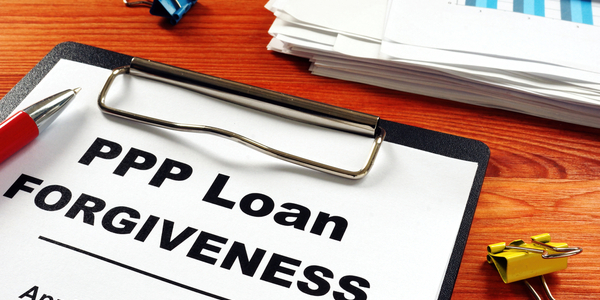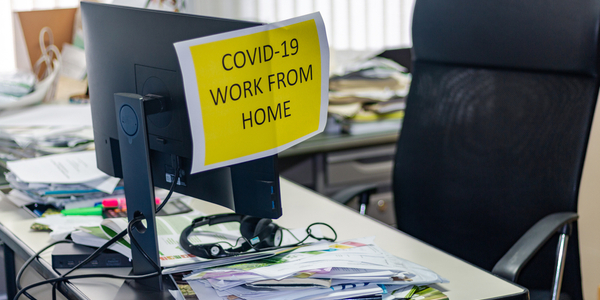
The Coronavirus pandemic has caused serious financial turmoil for businesses across the country. While nonessential businesses have been forced to temporarily close their doors, many essential businesses too are experiencing significant uncertainty in the marketplace caused by a dramatic reduction in customers and revenue. Although a handful of these businesses are beginning to reopen, full economic recovery seems far in the distant future.
It’s true that strict social distancing measures have reduced the number of Coronavirus-related hospitalizations, however they’ve also had an indirect (and dramatic) negative affect on seemingly every sector of the economy, and commercial real estate is no exception. In-fact, landlords have been inundated with questions from tenants regarding their lease obligations, chiefly their obligation to pay rent amid the COVID-19 pandemic.
The question is a fair one: if I’m not using my commercial space (either because of a temporary government order or a personal abundance of caution) am I still responsible to make regular rent payments? The short answer: yes. Regardless of the extraordinary evens caused by the Coronavirus pandemic, commercial renters must obey their lease agreement as it’s written (even though it was written at a time when a global pandemic was far-fetched). While most states have imposed moratoria on commercial evections, there was over $80 billion worth of rent due on April 1, so who’s going to foot the bill, landlords or tenants?
Fortunately, U.S. policy makers—acknowledging the severity of the situation—took swift action to mitigate the economic aftermath of the pandemic. In late March, congress passed the Coronavirus, Aid, Relief, and Economic Security (CARES) Act, a $2 trillion stimulus package that aims to provide immediate relief for many parts of the U.S. economy, including small business owners.
The Basics of the COVID-19 CARES Act
The CARES Act is a massive economic relief package that provides $2 trillion dollars worth of financial relief, but only a portion of this is accessible to small business owners. Importantly, certain criteria must be met and maintained to be eligible for the aid. Business owners who want to maximize their benefit under the CARES act are encouraged to consult a legal or tax professional.
The CARES Act provides immediate financial relief through two primary loan programs: the Coronavirus Economic Stabilization Act (CESA) and the Keeping American Workers Paid and Employed Act (which includes the more familiar Paycheck Protection Program or PPP).
The CESA: Loan programs through the CESA are organized and administered by the U.S. Treasury Department. Thus these loans—also called Federal Reserve Loans—are written per terms and conditions specified by the Treasury Secretary, which include restrictions on employee compensation and stock/dividend transactions. In an effort to curb layoffs and unemployment claims, the CESA also requires owners maintain certain levels of employment.
The PPP: Perhaps the more relevant loan program for small business owners is the Payment Protection Program or PPP. The PPP sets aside billions of dollars of federally-backed and potentially forgivable loans for qualifying businesses. These are also called small business loans or SBA loans as they’re only available for businesses with 500 workers or less. Qualified businesses are permitted to borrow up to 2.5-times their average monthly payroll costs and loans are capped at $10 million.
Both the CESA and the PPP are government-backed opportunities that provide immediate liquidity to business owners in an effort to combat the economic hardship endured by the COVID-19 pandemic. Importantly though, owners must know whether they qualify for these loans, when and how to apply, and how they’re allowed to spend the funding.
Can I use CARES Act Funding to Pay my Commercial Rent?
While there’s some uncertainty on how PPP funding can be used, owners are allowed to spend it on their rent, but it may not be in their best interest. SBA loans are mistakenly assumed to be “free” sums of money that need not be repaid to the government. Technically, this isn’t true. PPP funding is in-fact a loan, meaning that like any loan, there’s an interest rate, a term, a particular structure, and—of course—the presumption that the funds will be repaid in due time.
For an SBA loan, the latest guidelines suggest a relatively low interest rate (1%) and a maturity of two years. However, SBA funds aren’t simply another type of low-interest government loan. What makes them special is that they can be forgiven under particular circumstances. Namely, the borrowed funds need not be repaid as long as the borrowers spend the money according to the government-issued guidelines.
So how can owners best spend their SBA funding to ensure complete loan forgiveness? According to the U.S. Department of the Treasury webpage, SBA funds can be used to cover many types of business-related expenses, such as:
- Employee Salaries
- Employee Benefits
- Rent & Utilities
- Interest from other Debts (such as Mortgage Interest)
For concerned owners, it’s good to know that the SBA loans can be used for things like commercial rent and utility costs, but the real motivation of the PPP is to secure the workforce and avoid layoffs. Therefore, complete loan forgiveness is only possible if business owners use at least 75% of the funds exclusively for payroll and refrain from laying-off workers for eight consecutive weeks. This means that owners can use up to 25% of their PPP loan for rent (or other eligible expenses), but they should be incredibly careful and diligent, as using more can result in reduced loan forgiveness.
Importantly, the guidelines regarding SBA loans are evolving quickly alongside the COVID-19 pandemic. In order to ensure your small business is well-positioned to procure, manage, and maximize your SBA loan, it’s wise to consult a legal professional.
 June 03, 2020
June 03, 2020

